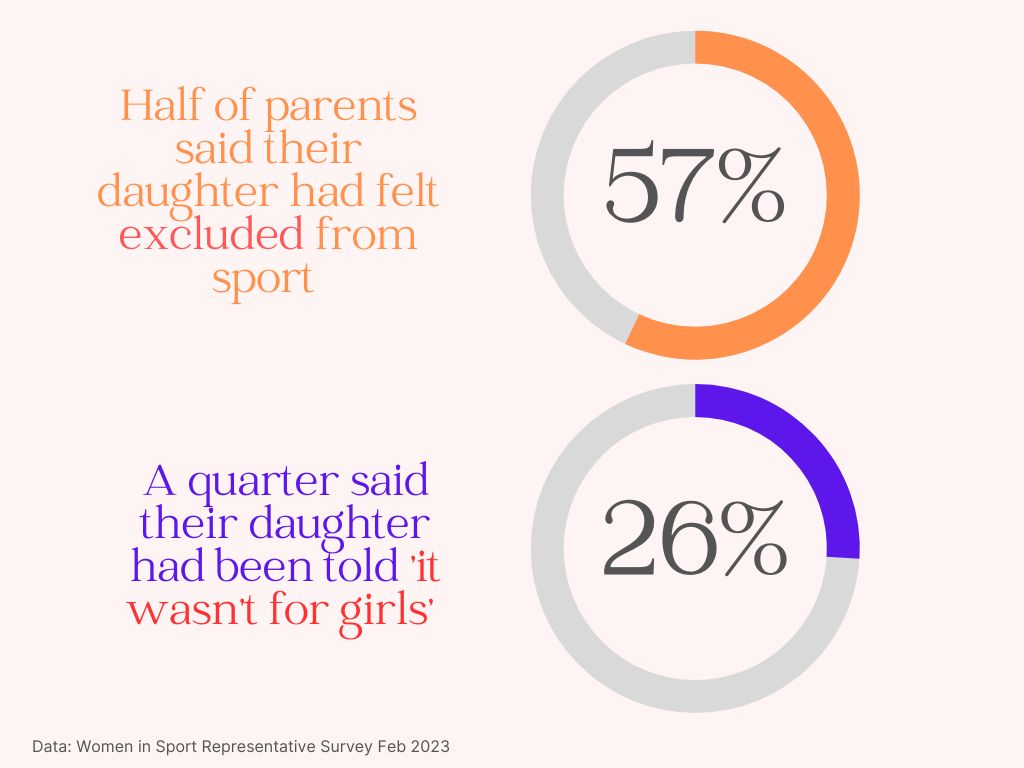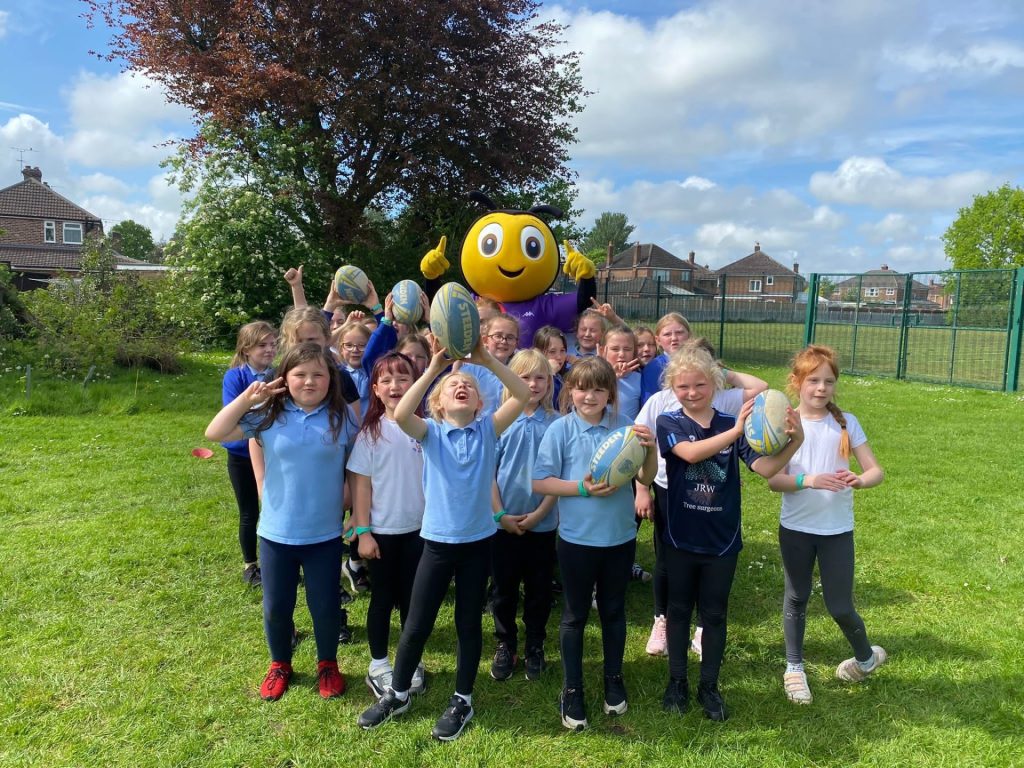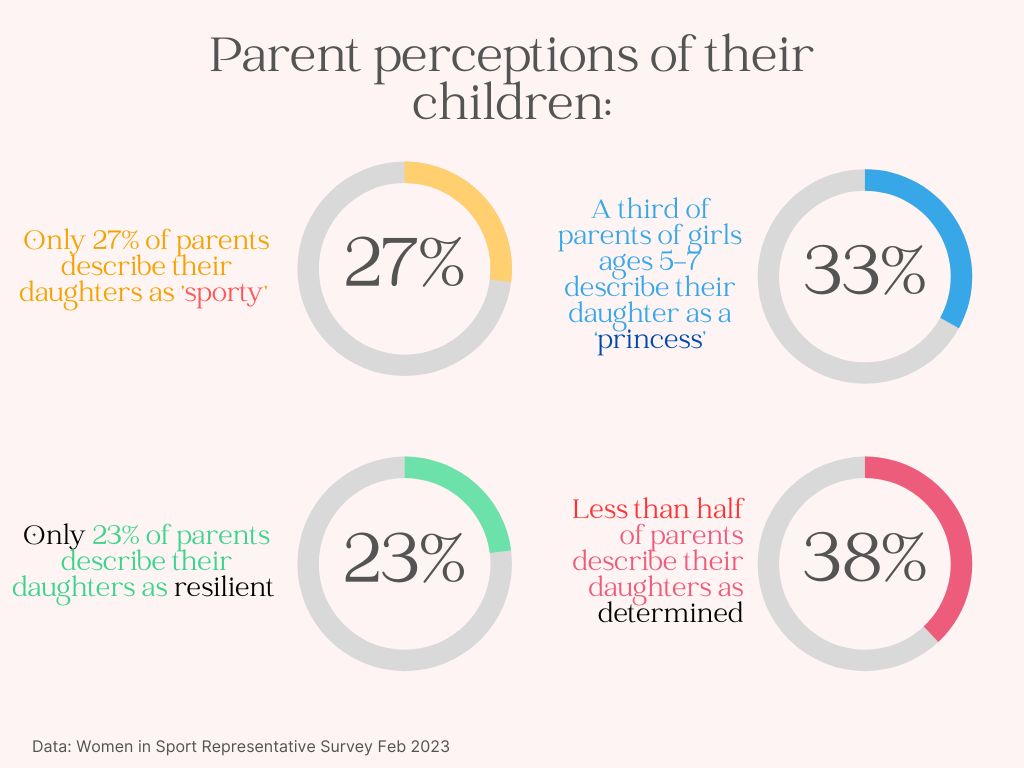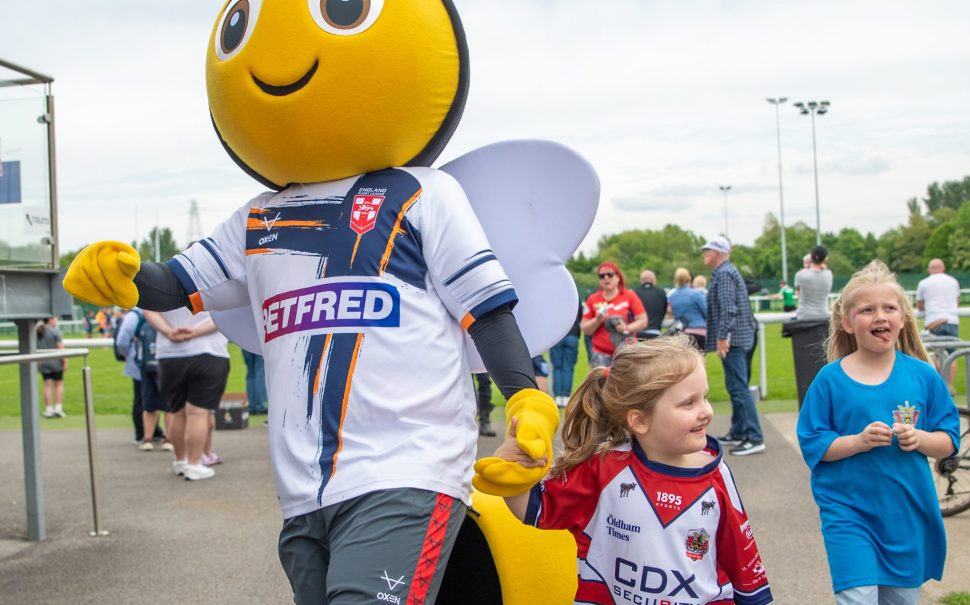The RFL has launched a girls’ community programme based on revealing data about sport and primary school-aged girls.
A survey from the charity Women in Sport, carried out in February, found that over half of parents (57%) said their daughter felt excluded from sport, with a quarter (26%) confirming their daughter had been told ‘it wasn’t for girls’.
The Rugby Football League said it was inspired by these findings to take action and started its new project called ‘Rugbees’ as a result.

Rugbees is open to girls between 7-11 and delivers weekly sessions which aim to introduce the technical skills of rugby in a fun and engaging way, while building confidence in fundamental skills like catching, passing and kicking.
England star and RFL National Women’s and Girl’s Development Manager, Jodie Cunningham said: “The programme was born from discussions within the RFL of ‘how do we get more women and girls playing the game but also make sure the environments that we’ve got are right for them?’”

“[Mixed teams] can be quite overwhelming and not the right environment for girls.
“Let’s say [the girls are] ten years old and they’re going down to play for the first time – they might be playing with a bunch of lads who have played since they were seven years old.
“It might just be they are less experienced which might lead them to feel it isn’t a place for them and exacerbate all the other things young girls hear like ‘you pass, tackle, kick like a girl’. Those are things that can put girls off sport and knock their confidence.
“[Rugbees] is a place where they can feel comfortable to fail. A safe space to try this new sport which has been seen as a boys sport. We want to break down those barriers.”

The Women in Sport data, on which Rugbees has been based, revealed that 40% of parents of girls ages 5-7 describe their daughter as a ‘girly girl’ and that a third of parents (33%) of girls ages 5-7 describe their daughter as a ‘princess’.
Cunningham sees these findings as key to driving the direction of the programme and changing parental perceptions.
She said: “I can’t tell you how many parents I speak to and say ‘you should get your daughter involved’ and they’ll say ‘oh no they’re a girly girl’ or ‘she’s a little princess, she won’t be playing sport’.
“It’s crazy. Those things are not mutually exclusive. You can be a princess or a girly girl and you can absolutely love sport and a really physical, previously male dominated sport at that. There is no reason why you can’t do both.
“That’s something we take into the programme and our general approach to the women’s game – to make sure that everybody, no matter where you fit on a scale of being girly, feels comfortable and welcome.
“We have such a range of all different types of people from all different types of backgrounds who like to represent their personalities in all different ways.
“Parental perceptions are key. Just because a girl loves playing with dolls or makeup that doesn’t mean that she can’t absolutely love and be brilliant at sport and rugby league.”
Featured image: The RFL





